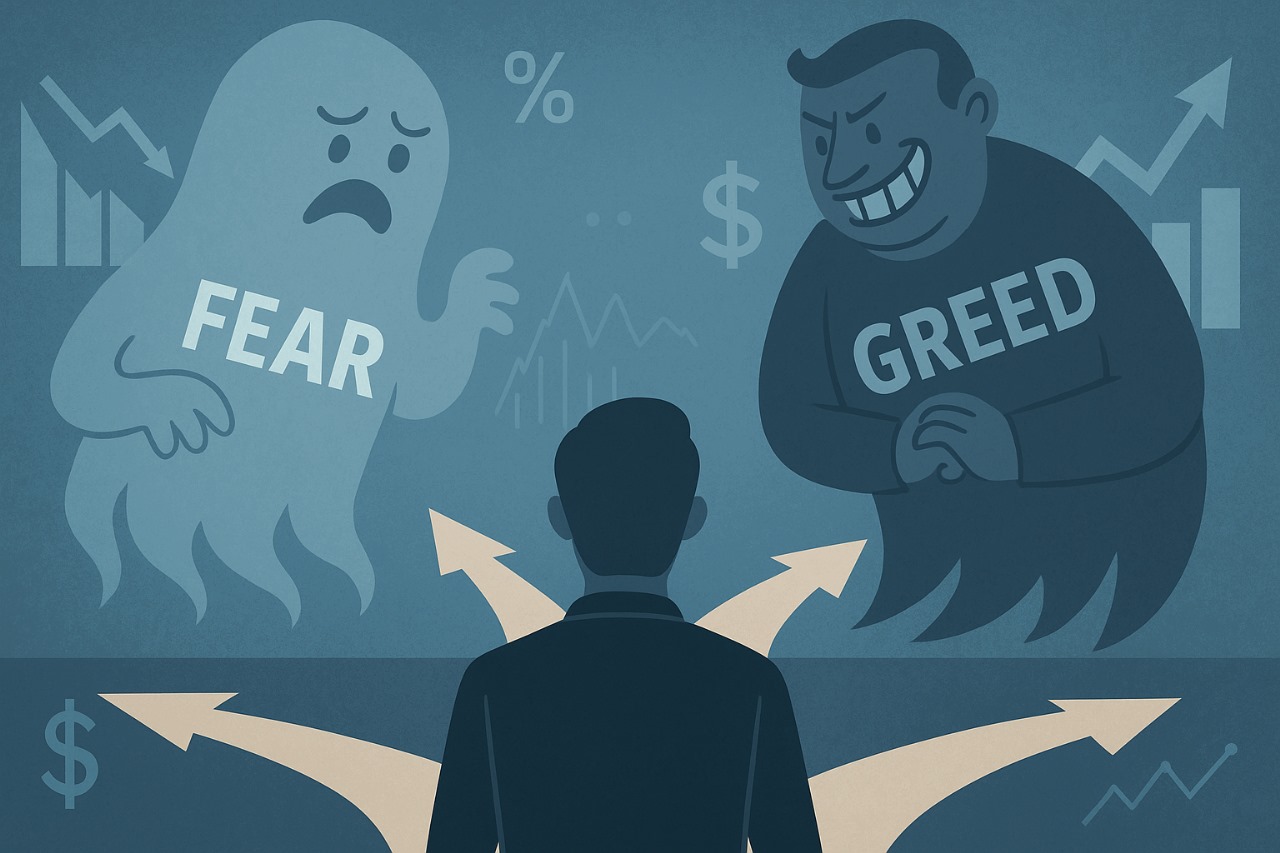Fear manifests in many ways: panic selling during downturns, hesitating to enter trades, or pulling out too soon. It's often triggered by bad news, volatility, or previous losses. On the other hand, greed can cause traders to chase high-flying stocks, over-leverage, or hold positions too long hoping for more gains—even when the rational decision is to exit.
"Be fearful when others are greedy, and greedy when others are fearful."— Warren Buffett
This advice underscores the importance of acting against emotional impulses, not with them.
Why Fear and Greed Are So Powerful
The financial markets are fast-paced, uncertain, and constantly evolving. These traits trigger the brain's primal responses—especially the fear of loss and the thrill of gain. Neuroscience shows that financial decisions activate the same parts of the brain associated with physical danger or reward, making emotion-driven decisions a natural but dangerous habit.
Practical Tips to Overcome Fear and Greed
Have a Clear Plan
Establish an investment or trading strategy that defines:
- Entry and exit points
- Risk tolerance
- Portfolio allocation
- Long-term goals
A clear plan removes impulsive decision-making and helps you stick to strategy during emotional highs and lows.
Use Stop-Loss and Take-Profit Levels
Protect yourself by setting predefined limits for losses and gains. This reduces the likelihood of panic-selling or greedily holding too long.
Avoid Overexposure
Don't put too much capital into one trade or asset class. Diversification not only reduces risk —it also calms emotions when one area of your portfolio experiences volatility.
Practice Mindfulness and Discipline
Staying emotionally aware during market movements is key. Before making a decision, pause and ask: Am I reacting emotionally or logically?
Focus on the Long Term
Zooming out from daily market noise to focus on long-term trends helps reduce the anxiety caused by short-term volatility.
Keep a Trading Journal
Track your decisions and note the emotional drivers behind them. Over time, you'll identify patterns and develop greater emotional control.
Common Traps to Watch Out For
FOMO (Fear of Missing Out)
Jumping into hot stocks or crypto during a rally can lead to buying at the top.
Confirmation Bias
Only seeking information that supports your existing beliefs leads to poor decisions.
Revenge Trading
Trying to make back losses quickly by taking bigger risks often compounds losses.
